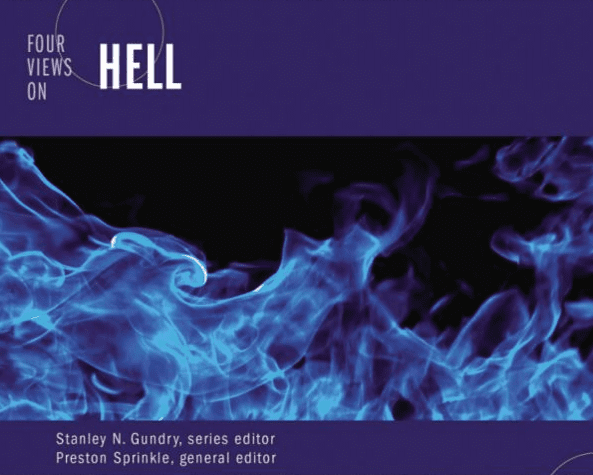Perhaps the fundamental obstacle in embracing the biblical understanding of what happens beyond death, in particular what is traditionally called “hell,” is the rhetorical powers of misguided Christians who have exploited hell to persuade people to escape it. It was this that Brian McLaren was tapping into in his newest book’s sketch of what he calls the Greco-Roman narrative. Whether you think back to Dante’s inferno, with his all-too-picturesque images of torment in hell, or to Bunyan’s imagery, or to Jonathan Edwards’ famous sermon, a sermon more often ridiculed than read, or to the preacher you heard as a child, the rhetoric about hell has created more obstacles to listening to the Bible’s statements about hell than anything else.
 So, it’s time once again to raise this issue, and this time we will be pondering Sharon Baker’s Razing Hell: Rethinking Everything You’ve Been Taught About God’s Wrath and Judgment
So, it’s time once again to raise this issue, and this time we will be pondering Sharon Baker’s Razing Hell: Rethinking Everything You’ve Been Taught About God’s Wrath and Judgment.
So, for whom does she write?
If the idea of hell haunts your dreams and disturbs your sleep, if you ever wonder at the justice (on injustice) of it all or about the God who deems it necessary to spend the majority of humanity, beloved humanity, created in God’s image, to burn there forever just because people found themselves raised in the wrong faith or had never heard of Jesus, this book is for you.
How important is this issue to you? I saw a tweet that was summarizing Robert Putnam’s talk and it suggested 83% of good people in other religions go to heaven. Do you find such numbers compelling?
Sharon Baker has no desire to abort what the Bible does say …
but I’m even more concerned about remaining faithful to the God of love, who desires the salvation of all people (1 Tim 2:4), whose grace is exceedingly abundant beyond all we can think or even ask for (Eph 3:20), and who loves enemies, even the Hitlters, the Idi Amins, and the Osama bin Ladens of the world (Matt 5:43-48; 1 John 4:8). Our traditional views of hell as a place of eternal punishment were unbelievers dwell in undying flames contract this image of God.
Do they?
This issue — eternal punishment, hell, the last judgment — is in my estimation one of the most significant theological issues of our age. For a host of reasons, not the least of which is global awareness of the numbers involved who have never heard of Jesus Christ, many today find the traditional doctrine of hell insufferable.And I believe what has led us our world to this condition is the insufferability of those who seemingly gloat in their belief in hell and in their utter confidence that they will not be there.
Baker’s sketch of what many have believed — she sketches Dante and then the fathers (Justin Martyr, Irenaeus, Clement of Alexandria) and then Jonathan Edwards and John Wesley.
She next goes to one of the fundamental issues: the image of God that rises into glowing, if ignored, prominence when one sees the God of such judgments. She quotes Edwards and Richard Baxter saying things that are deeply troubling — when it comes to what God is like.
She then moves to the gloating joy of the righteous who are depicted by some — theologians and pastors — as observing in joy the torments of the wicked — and among others she quotes Aquinas and Isaac Watts.
Well, that’s enough for today.











